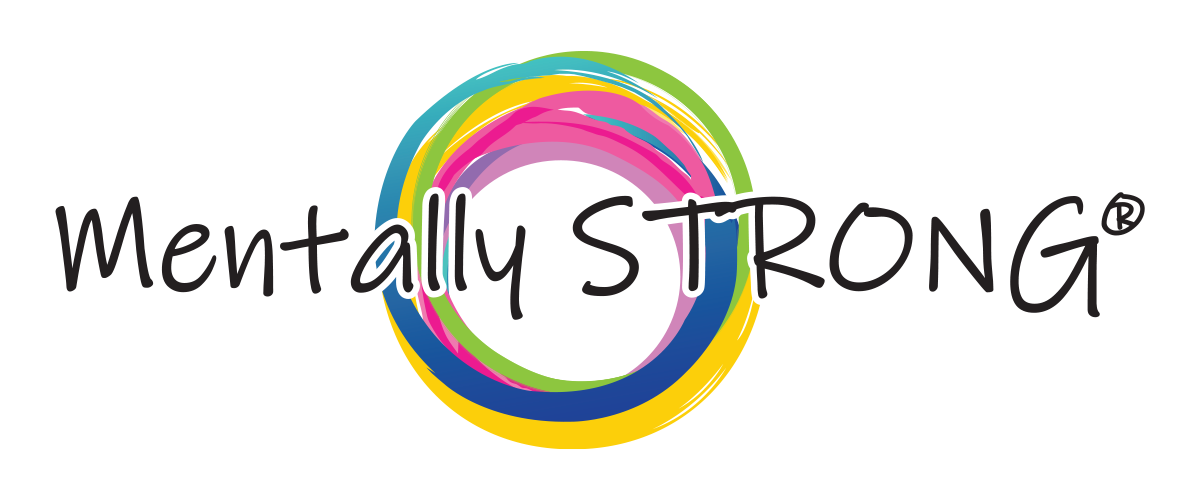Sometimes, grief doesn’t come when we expect it. Maybe you lost someone months or years ago, and only now are you feeling the depth of that loss. Or perhaps you didn’t grieve fully at the time, and you’re wondering why these feelings are showing up again. Delayed grief can be confusing, and it often brings up questions like, “Why didn’t I feel this sooner?” or “Is it too late to grieve?” But know this: delayed grief is entirely normal, and it’s just your mind and heart’s way of handling emotions when you’re ready. Let’s explore why this happens, what it looks like, and how you can find peace when grief makes an unexpected return.
What Is Delayed Grief and Why Does It Happen?
Can grief come back years later? Yes, grief isn’t always immediate and there is no timeline that it follows. When we face losses in life, our minds sometimes protect us by putting those feelings “on hold.” It’s a way of surviving until you’re in a place where you can safely process that pain. If grief is resurfacing for you now, months or even years later, it’s simply a sign that you’re ready to feel and heal.
Understanding Delayed Grief

You might wonder why the pain didn’t come when you expected. Maybe you were busy taking care of family, diving into work, or trying to keep life moving—grief can indeed come back years later, sometimes unexpectedly. Sometimes this delay in grief, or emotional delay, comes as the mind’s way of protecting you when feelings are overwhelming. Delayed grief doesn’t mean you’ve “failed” at grieving; it’s simply a signal that now, at this stage, you’re ready to go deeper.
Sometimes grief doesn’t have space to come up. You might have been taking care of others or putting one foot in front of the other just to get through each day. When we’re in survival mode, those big emotions may not have room to come through right away, resulting in what can be seen as a delayed grief response. But they’re still there, waiting patiently for a time when you’re able to look at them with compassion and understanding.
Using Distractions to Delay the Grieving Process
Many people distract themselves when life feels overwhelming. You might throw yourself into projects, focus on supporting others, or busy yourself with endless to-do lists. Staying busy can feel like a way to survive, but eventually, those feelings bubble back up—highlighting the importance of addressing rather than relying on unhealthy ways to deal with grief. If you’re feeling waves of sadness or grief out of nowhere, it may be a sign that your heart is ready to take this journey, no matter how long it’s been.
Recognizing the Signs of Delayed Grief
Delayed grief doesn’t come with a warning, and absent grief can even leave us questioning why we aren’t feeling more. You may feel unexpected emotions during everyday moments—a sudden sadness, an unexplainable heaviness, or tears that seem to come from nowhere. This is a delayed emotional response, and knowing these signs can help you understand that your heart is simply calling you to give it space to feel, even if that feels a bit strange or overdue.
Emotional Warning Signs of Delayed Grief
When grief comes back, it can show up in unexpected ways. You may feel a deep sadness that doesn’t make sense, a sudden regret, or even numbness that seems to settle over everything. These emotions are simply part of your grief finally coming through, asking for the chance to be recognized and healed.
Numbness and Detachment
For some, delayed grief shows up as numbness—a feeling of being cut off from emotions or from others. You might go through the motions of daily life but feel detached, almost like an observer. This numbness is your mind’s way of shielding you from feeling too much, too soon. It’s a temporary state, a pause that lets you manage the intensity of grief at your own pace.
Sudden Waves of Grief
Grief doesn’t need permission to show up. Sometimes, it hits like a wave when you’re least expecting it—a song, a smell, or even just a quiet moment can bring it all back. These moments can feel intense, like the loss happened yesterday, but they’re also natural. Think of these waves as your heart’s way of gradually releasing emotions that have been waiting to be felt.
Guilt and Regret Over Not Grieving Sooner
Delayed grief often brings feelings of guilt, especially if you didn’t have time or space to grieve initially. It’s easy to think, “Why am I feeling this now?” or “Did I not love them enough?” But delayed grief doesn’t reflect the depth of your love or the significance of your loss. It’s simply a part of how we process and heal, and that timeline is unique to each of us. Let go of guilt around “getting it right” and give yourself the space to grieve, right here, right now.
The Physical Toll of Unresolved Grief
Grief affects more than just our emotions; it often leaves a physical impact on our bodies as well. When grief is delayed or goes unaddressed, it can manifest in various physical symptoms that may seem unrelated at first. Your body and mind are deeply connected, and unresolved grief can take a toll on your physical health just as much as your mental well-being. Here are some common ways unresolved grief can show up physically.
Fatigue, Headaches, and Physical Discomfort
Unresolved grief often shows up as an all-encompassing tiredness that doesn’t seem to go away with rest. This fatigue often pairs with headaches or tension in the neck and shoulders, adding to the physical discomfort. Your body is constantly holding on to the weight of grief, and this takes up a great deal of energy. Muscles may ache, tension may build, and even small tasks can feel draining. This is your body’s response to carrying heavy, unprocessed emotions.
Anxiety, Sleeplessness, and Restlessness
Anxiety and worry about the future, along with feelings of loss, can lead to sleeplessness and restlessness. You might wake up frequently through the night, unable to get a full night’s rest, or you might simply find it impossible to fall asleep at all. These symptoms may persist as long as the grief remains unresolved, leaving your body in a constant state of “fight or flight,” which drains your energy reserves and further heightens feelings of stress.
Why Is It Important to Address Delayed Grief?

You may wonder, “Why revisit these feelings now if I’ve managed to keep going?” It’s a valid question. But grief, when unaddressed, often lingers beneath the surface, quietly shaping our experiences in ways we may not realize.
Unprocessed grief doesn’t simply fade; it spreads subtly into other areas of life. You may feel weighed down by sadness that seems to have no clear origin, or a sense of emptiness that’s hard to shake. Left unaddressed, suppressed grief can grow into what’s known as “complicated grief”—an intensified, consuming kind of pain that may last for years. Complicated grief can create persistent obstacles in connecting with yourself and with life, making healing more challenging if not approached gently when it arises.
Grief also impacts our relationships and self-image. It may create an emotional distance between you and those closest to you, leaving loved ones feeling confused or even shut out. Internally, unprocessed grief can lead to self-doubt, shame, or isolation. By addressing delayed grief, you give yourself permission to reconnect—with others and with your own compassion—making space for understanding, acceptance, and growth.
Getting Support for Delayed Grief
You don’t have to carry this weight of grief alone, even if it’s been years or if others expect you to have “moved on.” Sometimes, having someone there—whether that’s a grief counselor, a support group, or a grief and loss retreat—can be the gentle push you need to finally give yourself space to feel, to share, or to simply sit with someone who understands. Just imagine what it might feel like to be in a place where there’s no judgment, only acceptance, and where every part of your grief is welcomed and validated.
Connecting with others who truly “get it” can bring an unexpected comfort. You’re not explaining yourself, not justifying why it’s taken you time; you’re simply being yourself, raw and real. In a supportive group or retreat, each person brings their own experiences, which creates a space where all of us can find healing together, in our own time. Here, delayed grief isn’t seen as a flaw but as another part of your story that deserves compassion and care. So if you feel ready, let this be a step toward facing your pain with support, because there’s a world of difference between going it alone and having others by your side.
Moving Forward: Embracing Growth and Healing After Grief
If you’re feeling the weight of delayed grief, please know it doesn’t mean you’re falling behind. You’re on your own journey, one that’s shaped by the way you loved and by how deeply you felt that love, and there is gratitude to feel in that. Moving forward doesn’t mean setting grief down and walking away from it. Instead, it’s learning to carry it with gentleness, allowing both compassion and acceptance to make the load a little lighter.
Accepting Grief as Part of Your Healing Journey
Grief is not something to “get over”; it’s a part of your story now. When we stop pushing grief away, we give ourselves a chance to honor it, finding peace in living alongside it rather than in conflict with it. Days of heaviness will still come, and that’s okay. You might find that joy appears, too, and that these moments of happiness, however small, add meaning to your healing.
Finding Balance Between Grief and Joy

You’re allowed to hold sorrow in one hand and gratitude or even laughter in the other. Each feeling you have honors your experience and adds richness to your healing journey. If moments of happiness or relief come to you, let them, without guilt. Your heart can hold both, and you’re not taking away from your love or your loss by feeling moments of joy.
Setting Boundaries to Protect Your Emotional Well-being
Grief often reshapes our world, and part of moving forward is learning to protect the tender parts of yourself. Setting boundaries allows you to take care of your energy, especially when grief triggers arise, reminding you of what you need to feel secure. It’s okay to step back from people or situations that overwhelm you. Taking care of your well-being isn’t selfish—it’s essential for healing and growth, allowing you to show up in ways that honor both your loss and the strength you’re building to carry it.
You Are Not Alone in Your Grief Journey
Navigating delayed grief can be one of the most isolating experiences, but please remember—you don’t have to walk this alone. Many others have walked this path too, and found that grief doesn’t have to take over their lives. With time, support, and tools to guide you, delayed grief can become a part of your story without defining you.If you’re ready to explore support, reaching out to a grief counselor or joining a program like our free grief course can make a powerful difference. The course is designed to help you process delayed grief, offering exercises and insights that let you take things at your own pace. It’s about giving yourself a safe place to reflect, learn, and grow in ways that feel right for you. With compassion and the right support, you’ll find that you can carry this grief with both strength and hope, moving forward in a way that feels healing. And remember, if you ever need someone to talk to and help you with your grief journey, we are always here for you.

